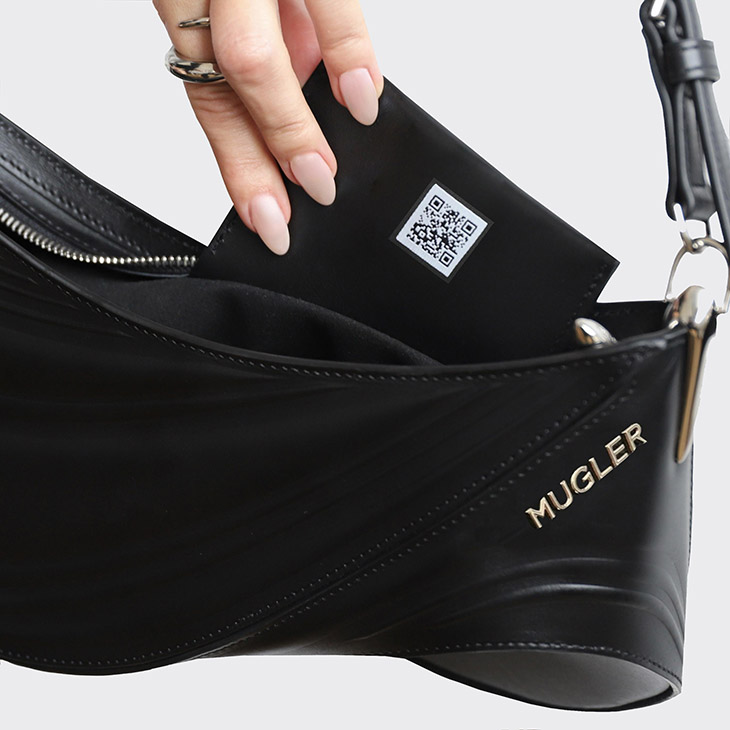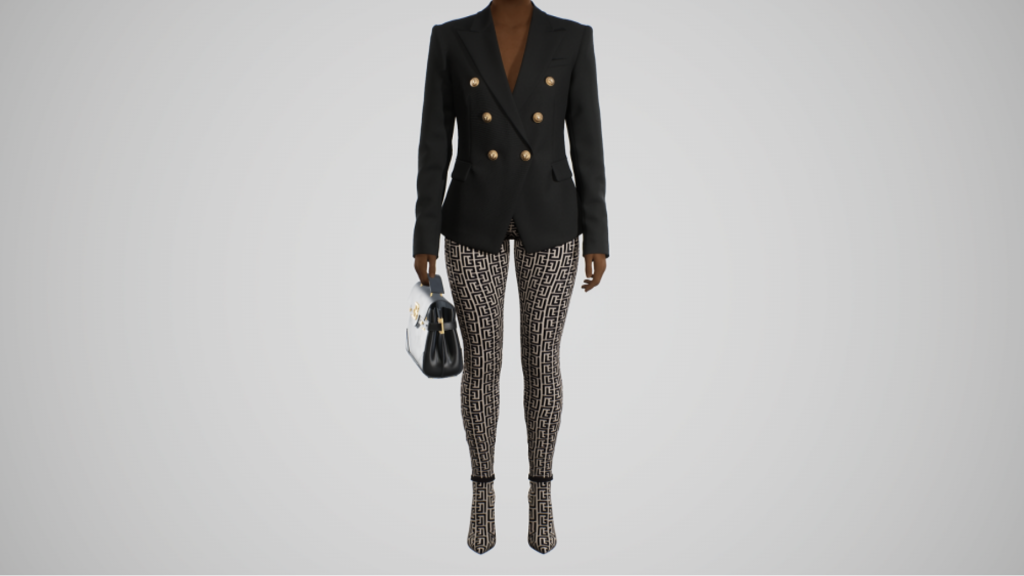It’s been a rocky road for the Web3 lexicon this year, with terms like “metaverse” and “NFT” losing their luster. In response, luxury labels are opting for language that’s a little less loaded — cue digital passports.
Essentially an NFT, the past 11 months have seen brands including Loro Piana and Panerai incorporate blockchain-based digital passports into their products to combat counterfeits and bolster consumer offerings. French fashion house Mugler is the latest to follow suit.
In other news, emerging tech embracer Balmain has introduced a new 3D fit function on its site to help lower customer returns and reduce its carbon footprint, while Boss’ fragrance division has entered Gen Z goldmine Fortnite.

Mugler launches digital passports on the blockchain
What happened: High-voltage fashion label and celebrity favorite Mugler has teamed up with blockchain infrastructure leader Arianee to introduce digital product passports.
Mugler’s Spiral Curve 01 and Spiral Curve 02 bags will be embedded with their own unique digital record, designed to be traceable and unlock access to behind-the-scenes content, event invitations, and early access sales.
Why it matters: Besides their ability to combat counterfeits, digital passports are becoming a common gateway for brands to build a more intimate and direct relationship with their consumers.
These digital twins are also set to become a legislative mandate across the EU. As the industry tackles ongoing environmental issues, brands will be required to connect their products to a passport that outlines their entire lifecycle. The rules of the bill will apply to all products placed on the EU market, whether produced inside or outside the EU.

Balmain amps up its e-commerce experience with 3D rendered fit function
What happened: On November 13, Balmain introduced a 3D fit function on its website in collaboration with fashion tech firm Bods. The feature allows customers to create 3D avatars that match their measurements and virtually try on photorealistic Balmain designs, including clothing, handbags, and boots.
Initially, seven historic ready-to-wear designs will be available, with more of the house’s iconic pieces and runway designs to be added over time.
Why it matters: Balmain has a history of incorporating high-tech features to enhance its brand experience and democratize the fashion landscape. The maison has previously dabbled in arenas such as the metaverse, NFTs, and gaming.
The virtual fitting function aims to significantly reduce returns, often due to improper fit, by providing consumers with better-informed sizing insights. Moreover, according to ethical brand resource Good On You, Balmain’s sustainability efforts remain “poor“; innovations like this are a step in the right direction for lowering its carbon footprint.
Boss Fragrance turns to Gen Z gaming hub Fortnite
What happened: As Boss secures its name as an emerging tech aficionado, the label’s fragrance division is betting big on luxury’s next potential consumers: Gen Z gamers.
The division made its debut in the Fortnite ecosystem this month with its “Be Your Own BOSS” experience, a gamified universe where players race to the top of a virtual skyscraper.
Why it matters: Unlike competitors, Boss is taking the increasingly digitized world in stride. For its Spring/Summer 2024 tech-fueled Milan Fashion Week showcase, the brand went to town on immersing audiences in their version of a technological utopia, coined Techtopia, complete with AI-powered robots and holographic installations.
Adding gaming into the mix places Boss as one to watch in the innovation race. Reaching 25 million players per day in Fortnite, gaming activations are on their way to becoming an indispensable marketing tool for luxury brands today.
This post was originally published on this site be sure to check out more of their content.




